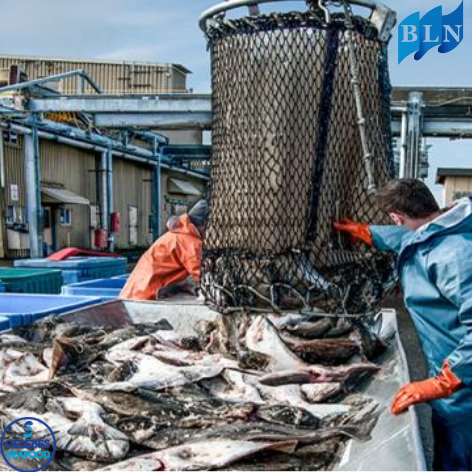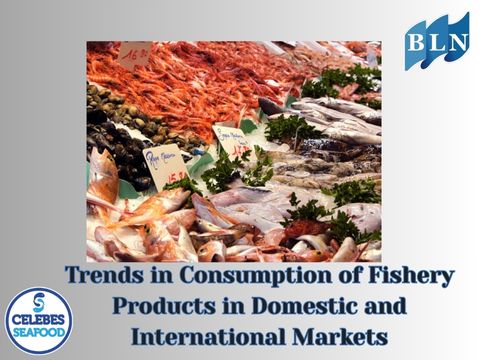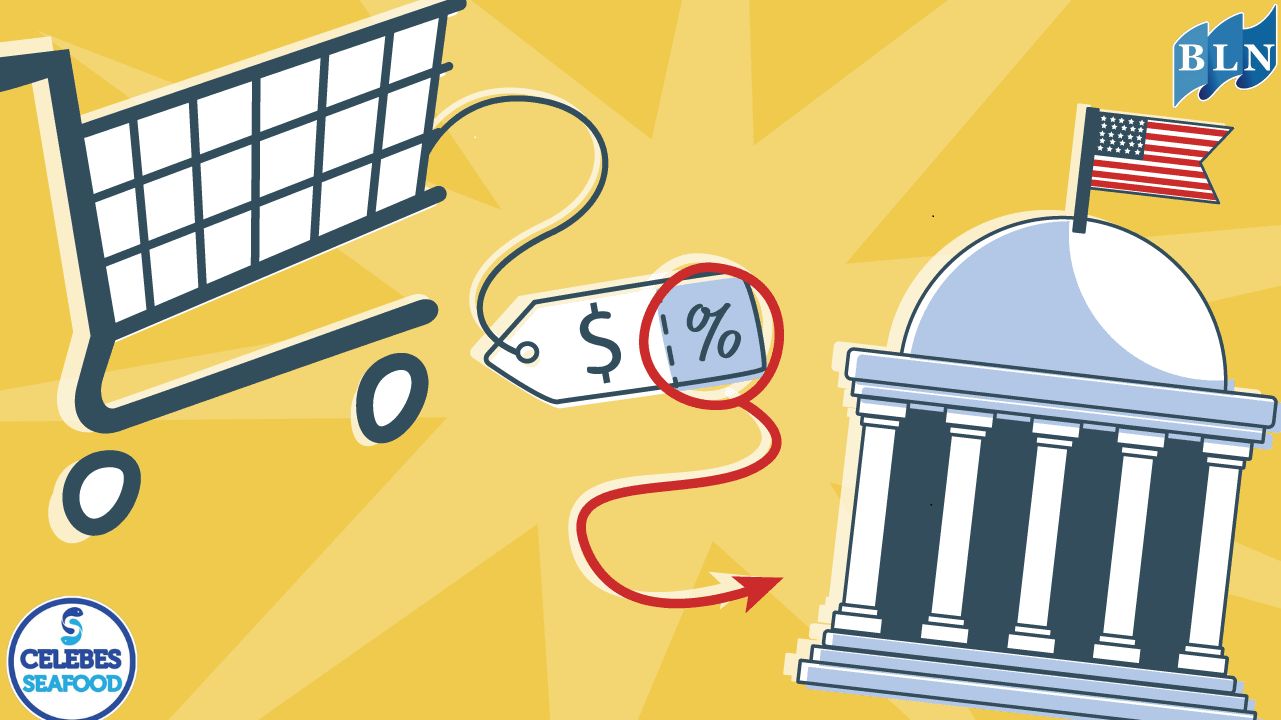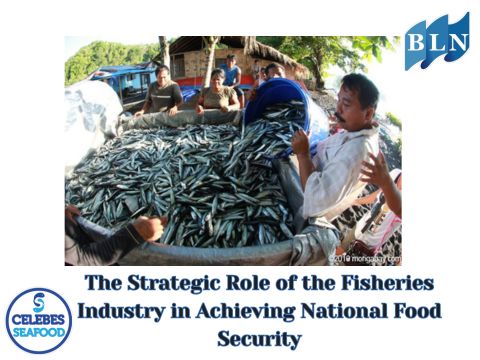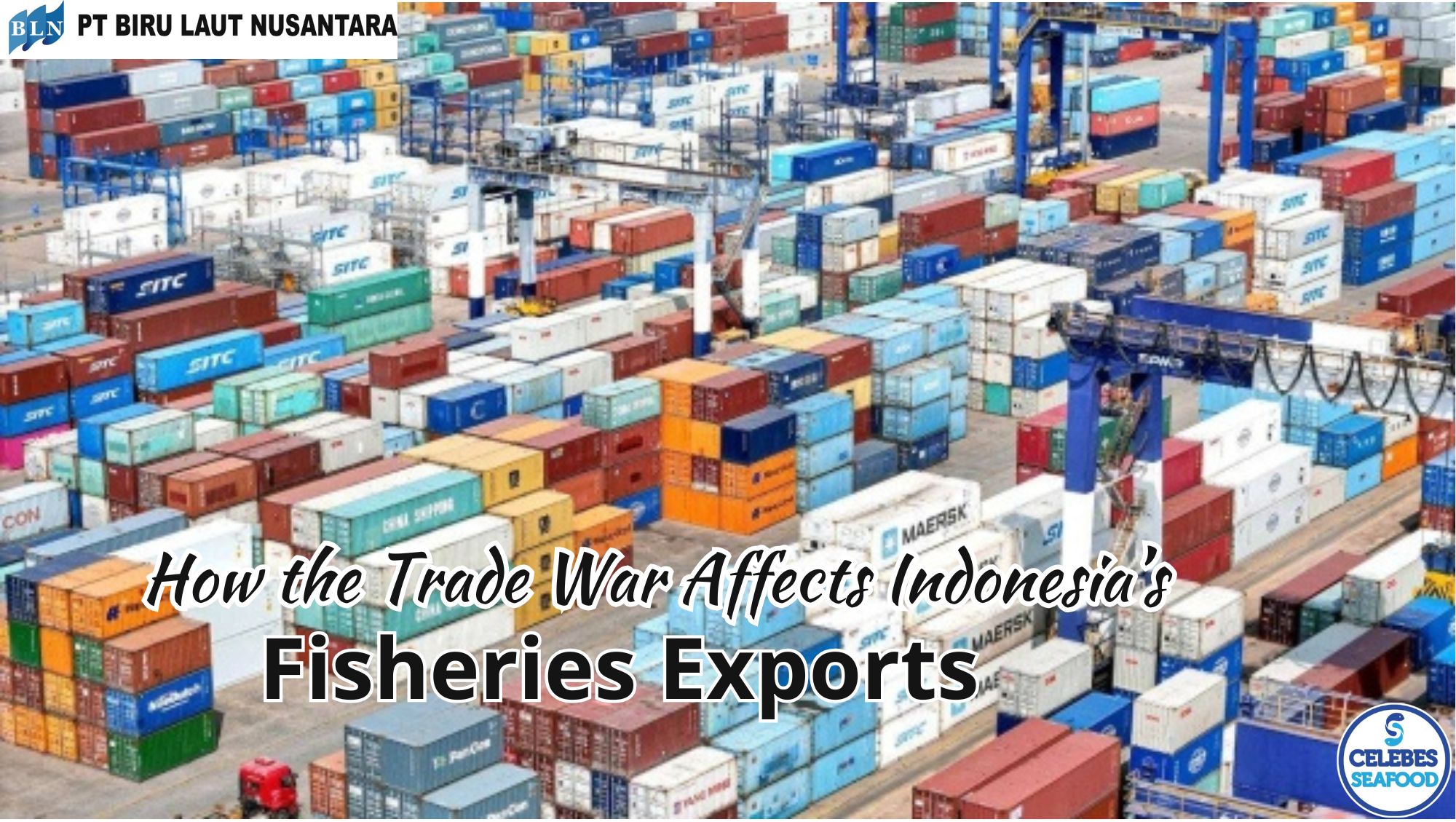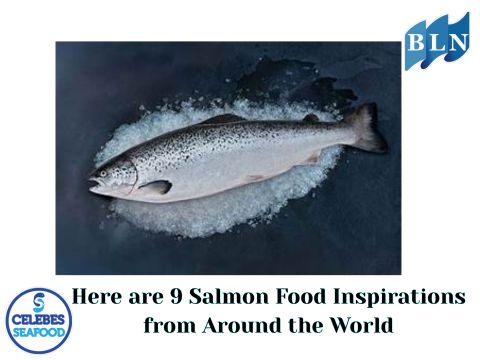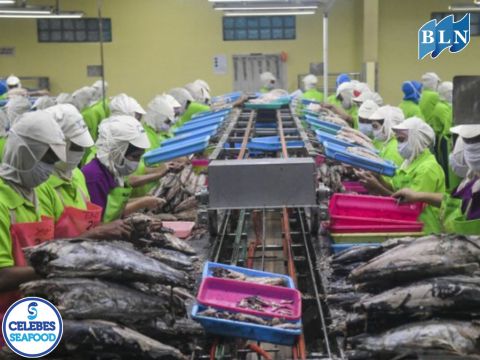Application of Blue Economy Principles in Industrial Fisheries Development
By. Amma - 08 Apr 2025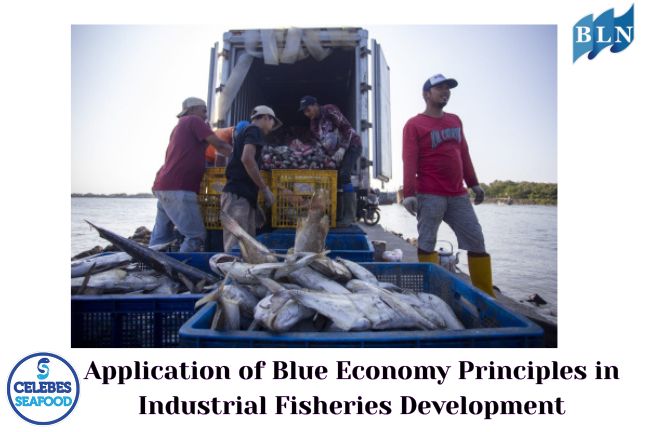
lautnusantara.com The application of blue economy principles in industrial fisheries development aims to create a fisheries industry that is not only economically profitable but also environmentally sustainable and socially inclusive. Here are some blue economy principles and examples of their application in the context of industrial fisheries:
1. Sustainable Resource Utilization:
- Science-Based Fish Stock Management: Implementing fishing quotas based on scientific data on fish populations to prevent overfishing.
- Selective Fishing Gear Use: Developing and using fishing gear that minimizes bycatch (fish or non-target species caught) and habitat damage. For example, using nets with mesh sizes that are appropriate for the target species or gear that avoids catching protected species.
- Fishing Area Rotation System: Implementing an open-close fishing area system to provide an opportunity for fish populations to recover and reproduce.
2. Minimizing Waste and Pollution:
- Utilization of Fishery Waste: Processing fish waste (offal, bones, skin) into value-added products such as animal feed, fertilizer, collagen, or other biotechnology products. This reduces waste discharged into the environment.
- Clean Energy Use: Adopting renewable energy sources for vessel operations and processing facilities, such as solar or wind power, to reduce carbon emissions.
- Wastewater Management: Ensuring effective wastewater treatment systems from vessels and processing plants to prevent marine pollution.
3. Protection and Restoration of Marine Ecosystems:
- Avoiding Fishing in Sensitive Areas: Prohibiting or limiting fishing activities in important areas such as coral reefs, seagrass beds, and fish spawning or rearing areas.
- Habitat Restoration: Contributing to efforts to restore marine ecosystems damaged by fishing activities or other factors. For example, supporting coral reef transplantation programs or mangrove planting.
- Reducing Plastic Waste: Reducing the use of single-use plastics in fisheries operations and participating in marine debris cleanup efforts.
4. Innovation and Green Technology:
- Development of Environmentally Friendly Fishing Technologies: Investing in research and development of more efficient fishing technologies with minimal environmental impact.
- Digital Applications for Fisheries Management: Using digital platforms for monitoring fishing activities, quota management, and product tracking, thereby increasing transparency and efficiency.
- Bioprospecting: Exploring the potential of marine biological resources for the discovery of new sustainable products (e.g., pharmaceuticals, cosmetics).
5. Local Community Engagement and Welfare:
- Partnership with Small-Scale Fishers: Developing a fair and mutually beneficial partnership model between industrial fishing companies and traditional fishermen and coastal communities.
- Economic Empowerment of Coastal Communities: Creating employment opportunities and increasing the capacity of local communities through training and involvement in the fisheries value chain.
- Equitable Benefit Sharing: Ensuring that the economic benefits of industrial fisheries are also felt by local communities.
The application of blue economy principles in industrial fisheries requires commitment from the government, industry players, communities, and related organizations. By integrating economic, social and environmental aspects, it is hoped that industrial fisheries can become a resilient, sustainable sector and provide long-term benefits for all parties.
If you are interested in our product Coral Trout Fillet Skin On, CORAL TROUT WGG WHOLE GILLED GUTTED please do not hesitate to contact us through email and/or whatsapp.
